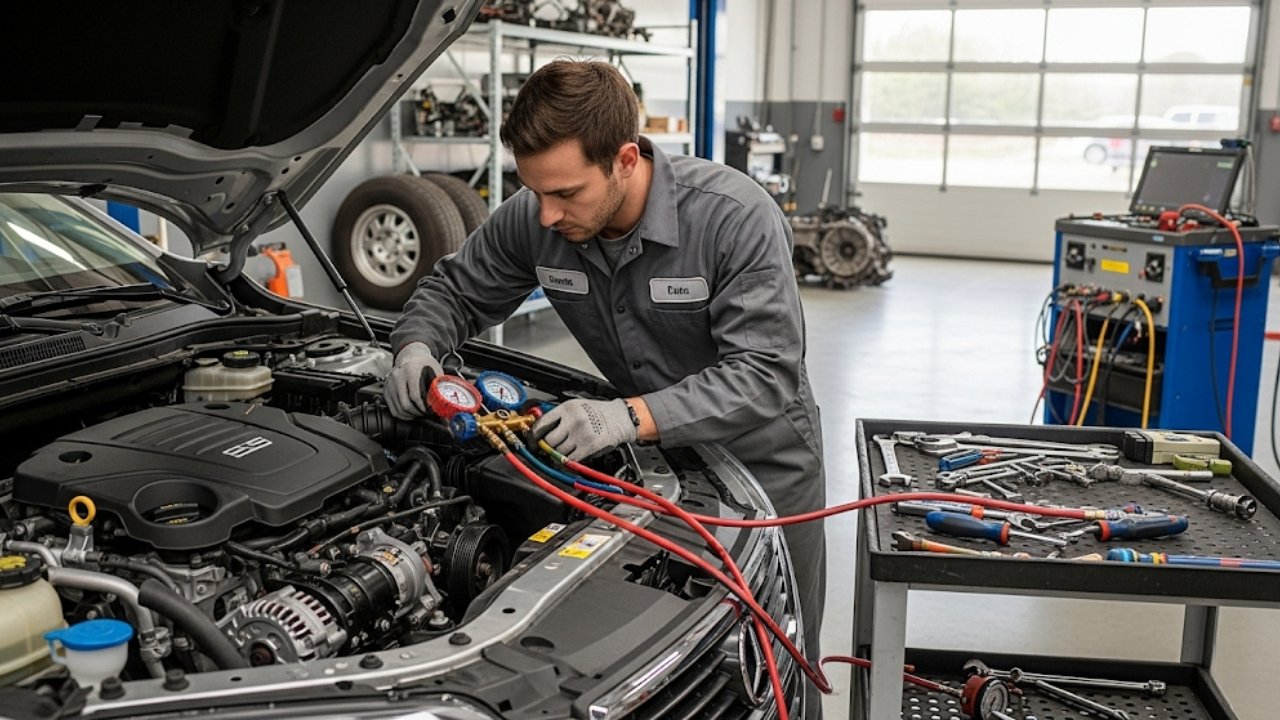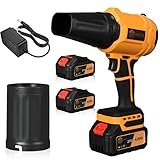How to Find Reliable Car Air Conditioning Repair Service

Table of Contents
ToggleIntroduction: Beat the Heat Before It Beats You
Summer is supposed to be about road trips, beach days, and scenic drives—not suffering in a hot car that feels more like a sauna. If your car’s air conditioning system gives out, even a short commute can turn into a sweaty, uncomfortable nightmare. And if you live somewhere like Phoenix, Miami, or even parts of Bangladesh, a working AC isn’t just a luxury—it’s a necessity.
But finding someone to fix it? That’s where the real challenge begins.
You’ve probably searched online for how to find reliable car air conditioning repair service, only to be flooded with too many choices. Dealerships, chains, local garages, mobile technicians—it’s enough to make your head spin. So how do you know which one to trust?
This guide is here to simplify the process. We’ll break down the basics of how your AC system works, the signs of trouble, and most importantly, how to choose a trustworthy repair service that won’t waste your time or money.
Understanding How Your Car’s AC Works

-
Compressor: Pumps refrigerant through the system
-
Condenser: Releases heat outside the car
-
Evaporator: Cools and dehumidifies the air inside
-
Refrigerant: The chemical that cycles through the system to remove heat
-
Expansion valve & hoses: Help control flow and pressure
When even one of these parts fails, your AC loses its ability to cool. But without diagnosing it properly, you might end up fixing the wrong thing—or overpaying.
Common Car AC Problems You Should Know
There are some problems that crop up more than others. Recognizing the symptoms early can save you money and prevent bigger headaches later.
1. Low Refrigerant
If the air from your vents feels weak or slightly cool—but not cold—you could be low on refrigerant. It’s often caused by leaks in hoses or seals.
2. Faulty Compressor
This is like the engine of your AC system. If it dies, the whole system stops working. You’ll notice no cold air, or a clicking noise when you turn the AC on.
3. Clogged Condenser
Your condenser sits at the front of the car. It can easily get blocked by dirt, leaves, or road grime, which restricts airflow and reduces cooling power.
4. Broken Evaporator
If you notice a musty smell, water inside the cabin, or weak airflow, your evaporator might be the culprit.
Signs That It’s Time for an AC Repair
Don’t ignore these red flags. If you notice any of the following, it’s time to search for how to find reliable car air conditioning repair service:
-
Warm air blowing from the vents
-
AC works only when driving, not while idling
-
Hissing, clicking, or grinding noises
-
Strange smells when AC is turned on
-
Water pooling on your floorboard
-
Weak airflow even at max settings
These signs often point to deeper problems. Waiting too long to address them can lead to costly repairs—or total AC failure.
Where Should You Get Your Car’s AC Fixed?
Here’s a breakdown of the four most common repair options, including their pros and cons:
| Repair Option | Pros | Cons |
|---|---|---|
| Dealership Service Center | Factory-trained, OEM parts, warranty coverage | Expensive, long wait times |
| Independent Mechanic | More affordable, personalized service | Quality varies—research is crucial |
| Mobile AC Repair | Convenience, home/office service | Limited services, higher cost in some cases |
| Chain Auto Repair Shop | Standardized pricing, multiple locations | Not always specialized in AC systems |
Dealerships: Trustworthy But Pricey
If your car is still under warranty or a newer model, dealership service centers are a smart choice. They have the specific tools and training for your make and model. Plus, any work done usually won’t void your warranty.
However, you’ll often pay more for labor and parts. And because dealerships are busy, you might have to book your appointment days—or even weeks—in advance.
Independent Mechanics: Affordable and Skilled (If You Choose Right)
An experienced independent mechanic can often repair your AC for significantly less than a dealership. Many local garages have certified technicians with years of hands-on experience.
Here’s how to vet them:
-
Check Google reviews and local ratings
-
Ask for certifications (like ASE)
-
Look for transparent pricing
-
Ask about AC-specific experience
Tip: Bring in your car for a diagnostic first. A good mechanic will clearly explain what’s wrong before doing any work.
Mobile AC Repair: The Mechanic Comes to You
This is one of the most convenient options. With mobile repair, the technician comes to your driveway or workplace. They often offer diagnostic, recharge, and even part replacement services right on the spot.
But beware—because they’re a small operation, you’ll want to ensure:
-
They’re licensed and insured
-
They specialize in AC repair
-
They offer guarantees or warranties on service
This option is great for busy people or those with an immobile vehicle.
Chain Auto Repair Shops: Fast, But Not Always Specialized
Chains like Midas, Firestone, or Pep Boys are everywhere. They’re often a go-to for quick service, and many offer AC diagnostics and recharge services.
Pros:
-
Fast turnaround
-
Consistent pricing
-
Easy scheduling
Cons:
-
Not always experts in AC-specific repairs
-
Might upsell unnecessary services
If you choose a chain, make sure to ask detailed questions and get a second opinion for major repairs.
How to Find Reliable Car Air Conditioning Repair Service: Step-by-Step
Finding the right shop doesn’t have to be overwhelming. Here’s a simple roadmap to follow:
Step 1: Get Referrals
Ask friends, coworkers, or family who they trust. Personal experience often beats online reviews.
Step 2: Check Online Reviews
Look at both the overall rating and read a few detailed comments. Pay attention to mentions of AC-specific repairs.
Step 3: Compare Prices
Call 2–3 places and ask for a quote on diagnostic and labor costs. Avoid places that are either suspiciously cheap or unreasonably high.
Step 4: Verify Certification
Look for ASE-certified technicians or other reputable accreditations.
Step 5: Ask the Right Questions
-
How long will it take?
-
What’s included in the diagnostic fee?
-
Do you use OEM or aftermarket parts?
-
Is your work guaranteed?
DIY AC Repair: Should You Try It?
Let’s be real—unless you have automotive experience, AC repair is not a DIY job.
Here’s why:
-
It involves handling pressurized refrigerant, which can be dangerous.
-
You need special tools to diagnose and fix leaks or faulty parts.
-
You can do more harm than good, especially with newer cars.
What you can do yourself:
-
Replace your cabin air filter
-
Clean leaves and debris from your condenser
-
Run your AC once a week to keep seals lubricated
But when in doubt, call a pro.
Preventative Maintenance Tips to Avoid AC Failure
They say prevention is better than cure—and it’s especially true for AC systems. Here’s how to keep your AC humming:
-
Run it regularly: Even in winter, turn on your AC for 5–10 minutes each week.
-
Replace filters: A dirty cabin filter restricts airflow and can cause your system to work harder.
-
Inspect belts and hoses: Look for cracks, fraying, or leaks.
-
Check refrigerant annually: A licensed tech can test levels and spot slow leaks.
What Should Car AC Repair Cost? (Realistic Expectations)
Prices for car air conditioning repair can vary dramatically depending on your car, the problem, and where you live. Below is a general breakdown to help you budget:
| Service Type | Estimated Cost (USD) |
|---|---|
| Diagnostic Check | $50 – $150 |
| Refrigerant Recharge (R134a) | $100 – $250 |
| Refrigerant Recharge (R1234yf) | $200 – $400+ |
| Compressor Replacement | $600 – $1,200+ |
| Condenser Replacement | $400 – $900 |
| Evaporator Coil Replacement | $850 – $1,500 |
| AC Hose or Line Replacement | $200 – $500 |
| Electrical Fixes (relays, sensors) | $100 – $300 |
Note: These are estimates. Actual prices can vary depending on your vehicle model, location, and shop markup.
Red Flags When Choosing an AC Repair Shop
Sometimes, it’s just as important to know where not to go. Here are some warning signs that you may be dealing with a shady or unreliable mechanic:
-
Pushy upselling: They pressure you to fix things unrelated to the AC issue.
-
No written estimates: Always demand a written breakdown of services and costs.
-
Lack of certifications: No ASE badge? No thanks.
-
Unclear warranty terms: A trustworthy shop should offer a guarantee on both parts and labor.
-
Vague diagnostics: If a mechanic can’t clearly explain what’s wrong, or keeps changing the problem, take your car elsewhere.
The Emotional Toll of Driving Without AC
Let’s be honest—dealing with a broken AC isn’t just a mechanical issue. It’s uncomfortable, stressful, and in some climates, even dangerous. Imagine being stuck in traffic, sweat dripping down your back, kids crying in the backseat, and no cool air in sight. It doesn’t just affect your comfort; it can put you on edge, increase road rage, and make you more distracted while driving.
This is why taking action quickly and knowing how to find reliable car air conditioning repair service matters. It’s not just about your car—it’s about your peace of mind.
5 Smart Questions to Ask Before Approving a Repair
To ensure you’re getting the right service for the right price, always ask:
-
What is the exact issue and cause?
-
What parts are being replaced? Are they OEM or aftermarket?
-
How long will the repair take?
-
Is this a permanent fix or a temporary solution?
-
What’s the warranty on the repair and parts?
These questions will help you gauge the technician’s transparency and competence.
How to Build a Relationship with a Trusted Mechanic
Once you’ve found a reliable shop, don’t just go once and disappear. Build a long-term relationship:
-
Leave a good review if they did a great job.
-
Refer friends or family.
-
Come in for regular maintenance—not just when things break.
-
Stay loyal, and in return, many shops offer priority service, discounts, or even flexible payment plans.
FAQs: Everything You’re Still Wondering About
1. How often should I recharge my car’s AC?
Usually every 2–3 years, unless there’s a leak. Some newer systems need it less frequently.
2. Is it safe to drive with a broken AC?
Yes, but in extreme heat it can lead to heat exhaustion—especially dangerous for kids, elderly passengers, and pets.
3. Can I use a DIY recharge kit?
You can, but it’s risky. Overcharging or using the wrong refrigerant can damage your AC system. Always better to get a professional check.
4. How long does AC repair take?
Simple fixes (like recharging) take 1–2 hours. Major repairs (like a compressor replacement) can take a full day or more.
5. Will AC repairs void my warranty?
Repairs done at a certified shop with approved parts should not void your warranty—but always check with your vehicle’s warranty policy first.
Final Thoughts
If there’s one thing you take away from this guide, it’s this: knowing how to find reliable car air conditioning repair service is not just about fixing your car—it’s about making smart, confident decisions that protect your wallet, your time, and your comfort.
The AC system might seem like a hidden part of your car until it stops working. When it does, it impacts everything—your focus, your safety, your mood. Don’t delay the repair, and don’t gamble on guesswork. Use the insights here to take control of the situation.






